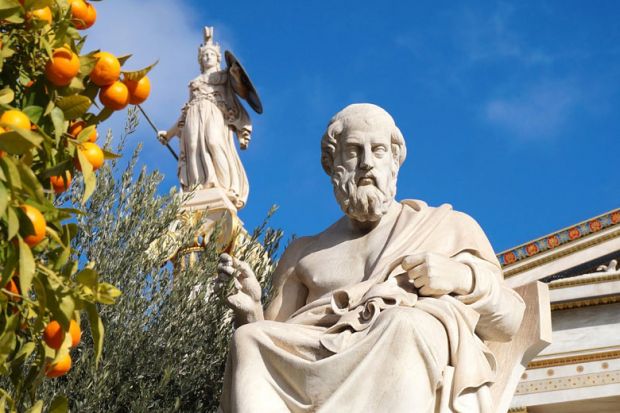The Ramsay Centre for Western Civilisation has announced that it will provide the University of Wollongong with A$50 million over eight years to fund a BA in Western civilisation. UoW is the first university the centre has reached an agreement with. I was at UoW at the end of last year, looking at its excellent education and research facilities, but that was in the field of engineering. UoW is less well-known for its arts faculties and it is not clear that the centre’s curriculum or its teaching methods will be of benefit to the university, its students or Western civilisation.
The arts are not my area of expertise, but I was curious as to what a degree in Western civilisation would involve and what career this would equip the graduate for. The centre helpfully provides an indicative curriculum for the BA in Western civilisation, described as “integrated degree programs focused on seminal texts of the Western tradition”.
The educational technique mandated by the Ramsay Centre is groups of six to eight students, instructed face-to-face. This format is unlikely to provide the most effective student learning. It will also prevent students who can’t get to the campus from studying and severely limit the number of students that it can teach.
While the Ramsay Centre is covering the cost of the tuition, there is still an opportunity cost for the student, who will be unable to progress as well as they could have otherwise. The centre may consider allowing a blended and online form of tuition, which would enable a diverse range of students to study there.
The centre provides a brief explanation of how such an education could be useful. It asserts that entry and mid-level jobs will be replaced by automation and that the remaining workers will need continual on-the-job training. As a result, the centre suggests that businesses will need interdisciplinary “innovators” with good communication skills.
While I agree that graduates will need good interdisciplinary, communication and innovation skills, it does not follow that this can be obtained from the study of the history of Western literature and music.
The automation of entry-level technical and professional jobs is not a reason for abandoning technical education, but for introducing more advanced technical education.
This is not to say that BAs have no place in the 21st century. As the centre points out, the curriculum leaves room for other studies. UoW already offers BA majors in vocationally relevant areas, which would help make up for the limitations in the centre’s curriculum and teaching technique.
There may be some students who have an interest in Western literature and music who would welcome this curriculum. Those students should be cautioned that, on its own, the centre’s curriculum will result in very limited career prospects and not make them much more employable in the 21st century than a high school graduate. Recent high school graduates, who studied the Australian Digital Technologies Curriculum, will be better qualified for today’s jobs.
Our community needs specialists in the Western canon, but very few, who will become academics and teachers. The majority of students should instead enrol in a programme that leads to a career outside academia. They should, of course, balance their technical education with some broad cultural knowledge, communication and team skills. Students may also undertake studies in innovation – and I suggest that they should learn how to undertake lifelong learning. However, this can be accommodated within a professional degree.
The centre’s curriculum reminds me of the Istanbul Museum of The History of Science & Technology in Islam. It has wonderful displays of carefully preserved examples of Islamic scientific machines and instruments. These are of historical interest only. The museum makes a case for Islamic scholars influencing the modern world, but they are not part of the modern world.
Similarly, the Ramsay Centre makes the case that the modern world owes much to great works of the past. While history can inform the modern world, it has a limited role in shaping the future.
To take an example from the centre’s curriculum, learning how ancient Athenian democracy worked can inform today's debates on democracy. However, this will not protect a modern democracy from attacks conducted via social media. Such attacks are being mounted by scientists and engineers with advanced technical skills employed by nation states.
Someone with the Ramsay Centre’s education in Western civilisation would find what they have learned to be as useful in defending Western civilisation in the 21st century as a classical education would be to military officers of the early 20th century on horseback facing a mechanised army.
Tom Worthington is an honorary senior lecturer in computer science at the Australian National University and a member of the professional education governance committee of the Australian Computer Society.
A version of this post originally appeared on the Mr Worthington's blog, the Higher Education Whisperer.
